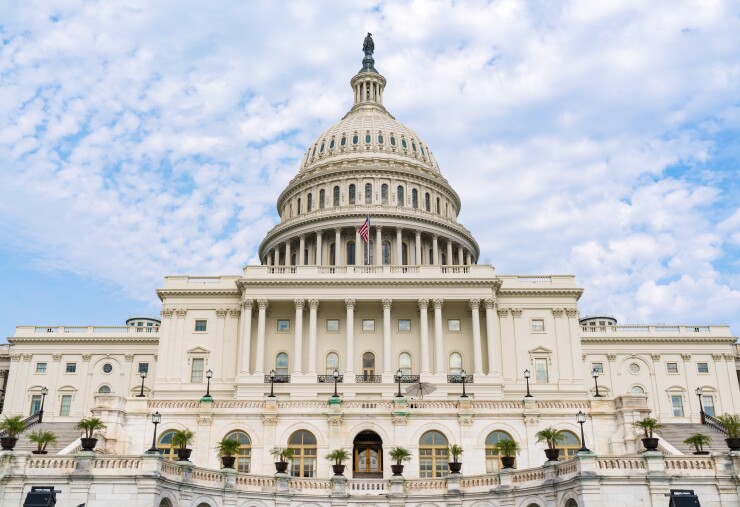
The Senate failed to override
The Senate on Wednesday voted
The rule, known as 1071 for its section in the Dodd-Frank Act, is currently
Sen. Sherrod Brown, D-Ohio, chairman of the Senate Committee, said after the vote Wednesday that he applauded lawmakers' "affirmation of the 1071 rule," saying the rule was designed to promote access to credit and to combat discrimination in small-business lending.
"The outcome of today's vote is a win for the engines of our economy: Small businesses, businesses and entrepreneurs," Brown said in a press release.
Lawmakers knew early on that Biden would veto the resolution, so the vote to nullify the rule was largely symbolic. Still, Congressional Review Act challenges that pass both the House and the Senate are rare, especially those that can draw bipartisan support.
Consumer advocates lobbied lawmakers to support the rule, which allows for public disclosure of data that would potentially show the number of small-business loans originated — and denied — to women and minorities. Banks, credit unions and fintechs face potential
"This issue has had a lot of strong support from civil rights and small-business advocates and there's been a fair amount of advocacy around this," said David Ferreira, senior government relations manager at the Center for Responsible Lending.
He cited widespread support for the rule among nearly 100 civil rights and consumer groups, including the Consumer Federation of America, Center for Responsible Lending, Farm Aid, National Urban League, NAACP, the U.S. Hispanic Chamber of Commerce and the Union of Concerned Scientists.
The CFPB dragged its feet for more than a decade and ultimately was forced to finalize a rule after it was
The rule requires that small-business lenders collect race, gender and demographic data from small-business loan applicants. The rule is similar to
CFPB Director Rohit Chopra has framed the rule as necessary to give regulators data about small-business lending which was lacking when the pandemic hit and the government created the Paycheck Protection Program.
"This small business loan census will give the public key data on this market to ensure that banks and nonbanks are serving small businesses fairly,"
Still, the banking industry has opposed collecting data on small-business applicants saying the rule's requirements are burdensome and would restrict credit to small businesses while raising costs. Banks claim implementation of the rule, which takes effect in October, is a complex effort involving
The small-business data collection rule
The 1071 rule's compliance deadlines begin in October for lenders that originated 2,500 small-business loans in 2022 and 2033. Lenders that originated between 500 and 2,500 in the previous two years have until April 1, 2025, to comply, while the smallest lenders with fewer than 500 loans start reporting on January 1, 2026.






